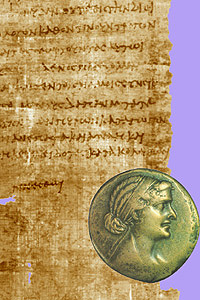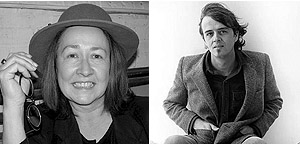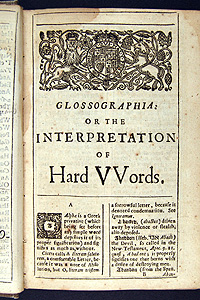March Highlights
 | |
Oriental Institute
“Cleopatra as CEO”
7 p.m., Wednesday, March 28
Breasted Hall, 1155 E. 58th St.
Janet Johnson, the Morton D. Hull Distinguished Service Professor of Egyptology at the Oriental Institute, will discuss how the relations between Cleopatra and several of the most important Romans of her day are frequently interpreted through the lens of Egyptomania. Egyptomania, the love (and hatred) of all things Egyptian, permeated Roman society, and the fascination ancient Egypt holds for modern audiences. This lecture will reappraise the political and economic situation in Egypt during Cleopatra VII’s reign based on contemporary Egyptian, rather than Roman, documents and records. It evaluates Cleopatra as a ruler, not lover or sex-pot, and suggests a less personal and more political underpinning of her relationships with Julius Caesar and Mark Antony. This event is free and open to the public.
 Allora and Calzadilla, "Wake Up," installation view at The Renaissance Society; lights, sound, walls; 2007. | |
The Renaissance Society
Allora and Calzadilla, “Wake Up”
Through Sunday, April 15
Cobb Hall, 5811 S. Ellis Ave., Room 418.
“Reveille,” the bugle call that signals the start of the military day, is the subject of “Wake Up,” a sound and light installation by artist collaborative Jennifer Allora and Guillermo Calzadilla. For “Wake Up,” the artists asked trumpet players from around the world, working in a range of styles, to interpret “Reveille.” These recordings will be played over a series of speakers running along diagonal corridors that are a radical alteration of the gallery space. The warm lighting scheme will take its cue from the sound, gradually dimming and brightening in relation to the amplitude of the music.
 Dara Wier and James Tate | |
The Poem Present Reading and Lecture Series
James Tate and Dara Wier
5:30 p.m. Thursday, March 29
Rosenwald Hall, 1101 E. 58th St., Room 405.
As part of the Poem Present Reading and Lecture Series, authors James Tate and Dara Wier will present a collaborative lecture and poetry reading. Together they rescued The Lost Epic of Arthur Davidson Ficke: The author’s annotations, commentary and notes of reference for A Millennium’ s Teardrop. James Tate won the Pulitzer Prize in 1994 for his Selected Poems. His newest book is Return to the City of White Donkeys. He currently teaches at the University of Massachusetts, Amherst. Dara Wier has written 10 books, including Remnants of Hannah, Reverse Rapture, Hat on a Pond and Voyages in English. She has been awarded the American Poetry Review’s Jerome Shestack Prize, a Guggenheim Foundation Fellowship, a National Endowment for the Arts Fellowship and a Massachusetts Cultural Council Artists Award. Her poems have been featured prominently in a number of anthologies and periodicals. She is currently a member of the poetry faculty and director of the M.F.A. program for poets and writers at the University of Massachusetts, Amherst.
 Thomas Blount (1618-1679). Glossographia, or, a Dictionary, Interpreting All Such Hard Words. | |
Special Collections Research Center, University of Chicago Library
“The Meaning of Dictionaries”
Through Friday, July 6
Joseph Regenstein Library, 1100 E. 57th St.
Focusing on English language dictionaries, this exhibit explores the ways dictionaries have defined meaning from the Enlightenment to the digital age, as well as what dictionaries mean within their cultural contexts. Often considered neutral, authoritative works of reference, dictionaries reflect the social and political circumstances of the time and place in which they are produced. And, while frequently associated with one person, dictionaries are the products of many hands that are frequently revised, adapted and even appropriated. Dictionaries and their makers, from Samuel Johnson and Noah Webster to Sir William Craigie and the University’s work on The Dictionary of American English, will be considered, along with themes such as nationalism, standardization of language, and dictionary-making and use in a digital environment.
![[Chronicle]](/images/sidebar_header_oct06.gif)